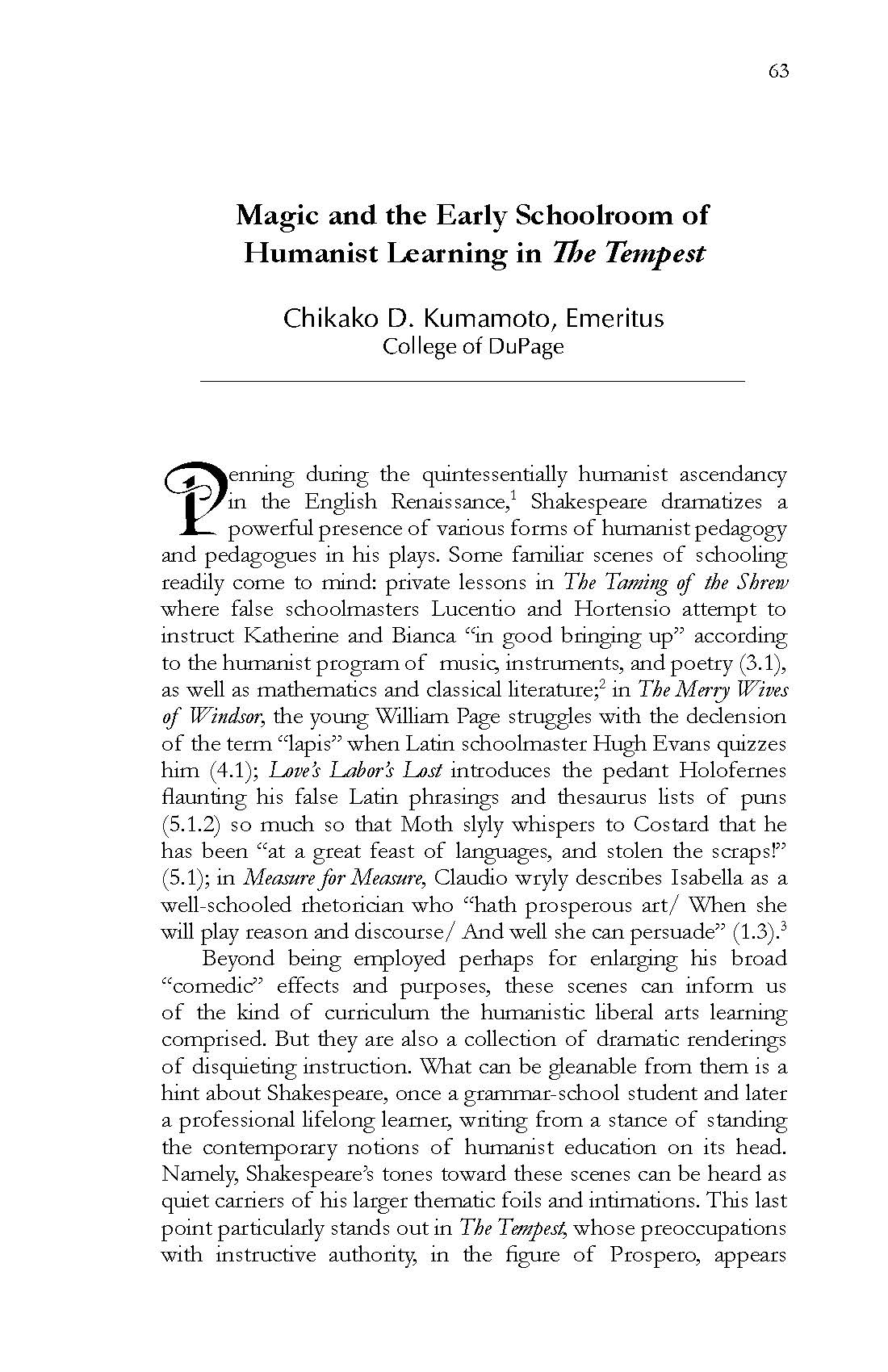Magic and the Early Schoolroom of Humanist Learning in The Tempest
Main Article Content
Abstract
Penning during the quintessentially humanist ascendancy in the English Renaissance,1 Shakespeare dramatizes a powerful presence of various forms of humanist pedagogy and pedagogues in his plays. Some familiar scenes of schooling readily come to mind: private lessons in The Taming of the Shrew where false schoolmasters Lucentio and Hortensio attempt to instruct Katherine and Bianca “in good bringing up” according to the humanist program of music, instruments, and poetry (3.1), as well as mathematics and classical literature;2 in The Merry Wives of Windsor, the young William Page struggles with the declension of the term “lapis” when Latin schoolmaster Hugh Evans quizzes him (4.1); Love’s Labor’s Lost introduces the pedant Holofernes flaunting his false Latin phrasings and thesaurus lists of puns (5.1.2) so much so that Moth slyly whispers to Costard that he has been “at a great feast of languages, and stolen the scraps!” (5.1); in Measure for Measure, Claudio wryly describes Isabella as a well-schooled rhetorician who “hath prosperous art/ When she will play reason and discourse/ And well she can persuade” (1.3).3
